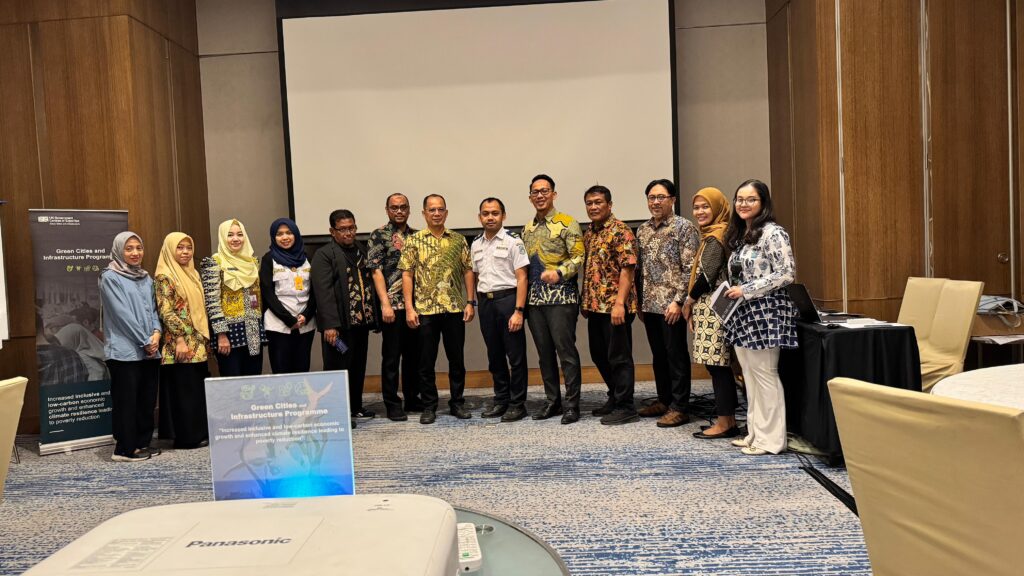- A workshop held in Surabaya, Indonesia has helped refine a roadmap for transit-oriented development for the metropolitan city region and further afield.
- GCIEP delivered the multi-criteria analysis workshop, engaging stakeholders from across the wider Surabaya metropolitan area (known as GKS+).
- The workshop and evolving TOD roadmap will help urban planners and others to identify and assess potential sites more holistically.

The workshop gathered urban planners, local governments and regional development agencies.
City planners and other stakeholders from the Surabaya metropolitan area in East Java province, Indonesia, came together on 19 June 2025 for a workshop to develop a transit-oriented development (TOD) roadmap, delivered by Green Cities, Infrastructure and Energy Programme (GCIEP).
The Gerbangkertosusilo Plus (GKS+) region, including Surabaya city and surrounding urban areas, is a strategic area and a key driver of economic development in Indonesia. The Government of Indonesia has committed to transforming GKS+ into a globally competitive economic hub. This calls for greater investment and development, and specifically TOD, which involves creating high-density, mixed-use communities centred around public transit hubs.
However, implementing TOD in practice is challenging for a region such as GKS+, which encompasses multiple cities, each with distinct development priorities and urban planning frameworks. Without a harmonised approach, planning risks becoming fragmented and less effective.
Working with local planning and development stakeholders, GCIEP delivered a workshop with the aim of validating and refining a TOD roadmap methodology across the GKS+ region.
To evaluate potential TOD sites, the workshop employed multi-criteria analysis (MCA). This framework assessed locations against key criteria, including land availability, regulation, social and environmental factors, as well as market potential.
The assessment revealed that different sites showed distinct strengths: Pasar Turi, Gubeng and Wonokromo scored highly on land availability and regulatory alignment, while Tunjungan and Wonokromo were notable for their strong market potential. Pasar Turi also ranked favourably for its minimal social and environmental impact. These nuanced results provide a strategic guide for tailoring development decisions to the unique strengths of each location.
Reflecting on the workshop, one participant from Bappedalitbang Surabaya (the city’s agency for planning, research and development) commented:
“Not all potential TOD locations listed [in the MCA] are included in existing planning documents, and the criteria for defining TOD areas are not yet clearly stated in the regulations. Through collaborative discussions like this workshop, we can work together to develop criteria that can later be applied beyond the GKS+ area.”
Following the workshop, the evolving TOD roadmap will be revised and improved based on the feedback and input received from stakeholders, reflecting the diverse priorities of the participating cities and regencies. It could also be adapted as a planning tool for wider use across the East Java region.
This workshop marks a critical step towards achieving a more connected, inclusive and sustainable urban future. By shaping a TOD Roadmap that reflects local priorities while promoting regional integration, the process helps to ensure that future transit-oriented development is both context-specific and strategically aligned. This collaborative approach lays the foundation for more resilient urban growth, informed decision-making and long-term infrastructure investment across GKS+ and beyond.

The UK’s Green Cities, Infrastructure and Energy Programme is tackling climate change and extreme poverty by accelerating the delivery of sustainable green cities and climate-resilient infrastructure.
Published
21/07/25
